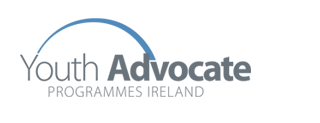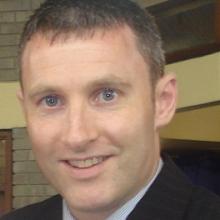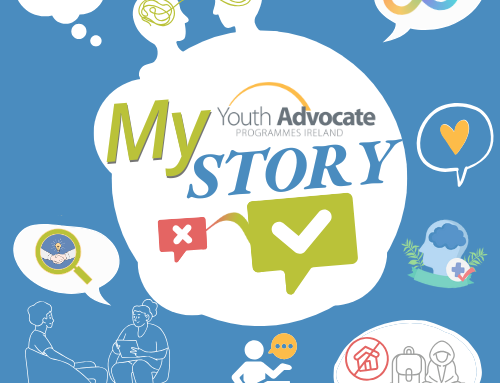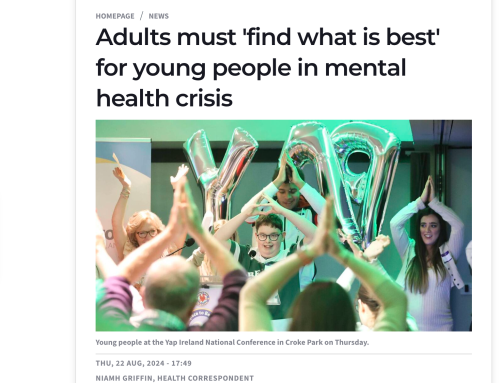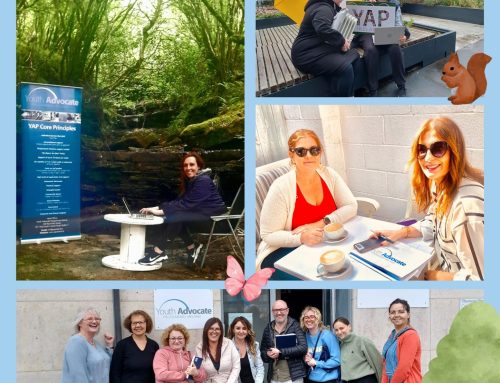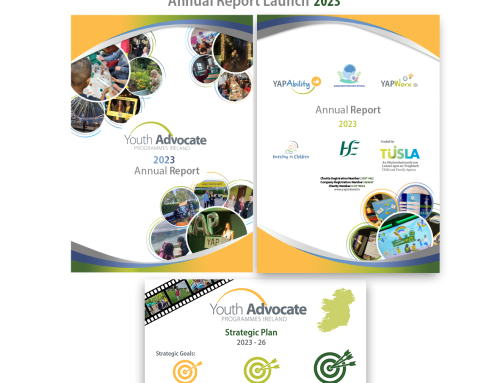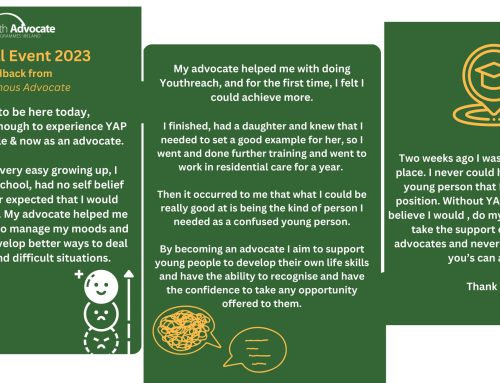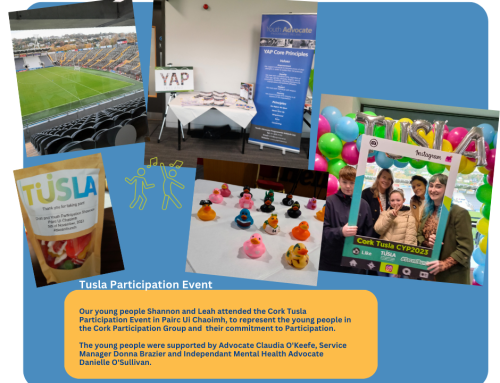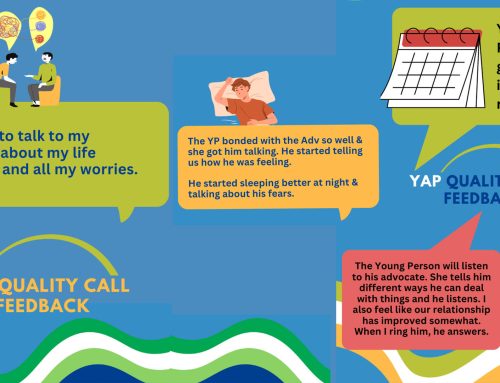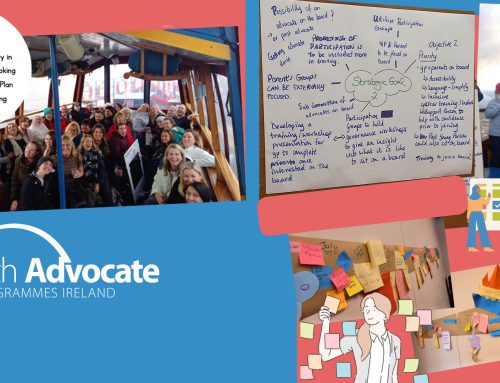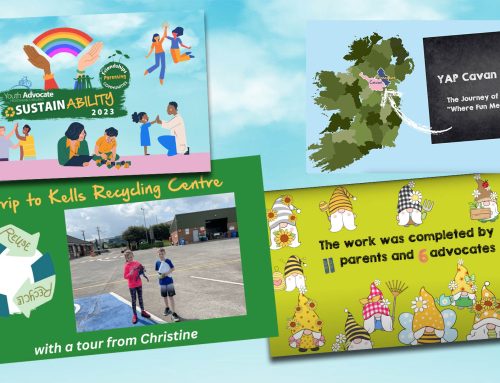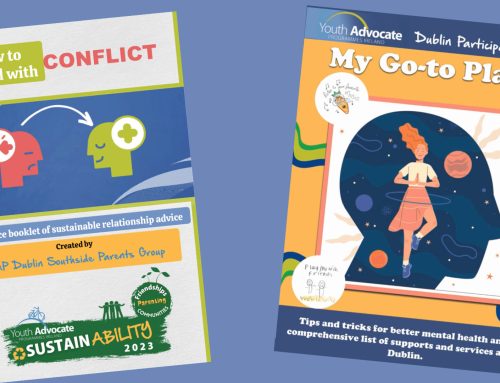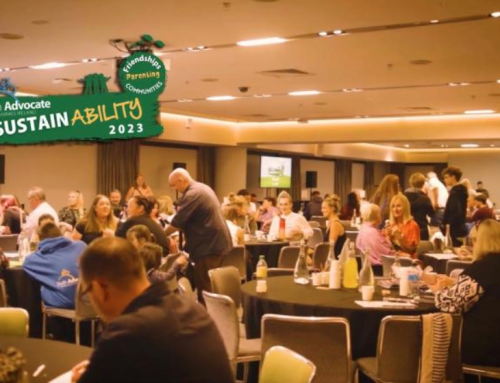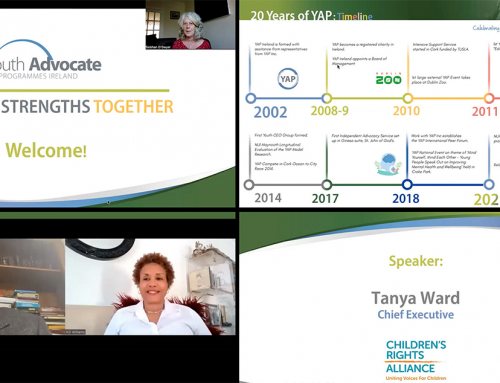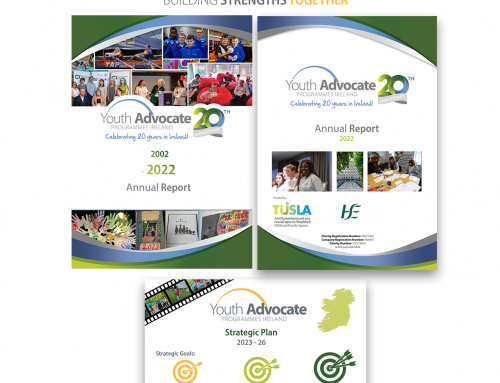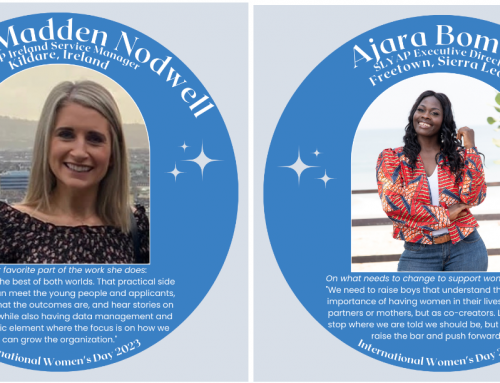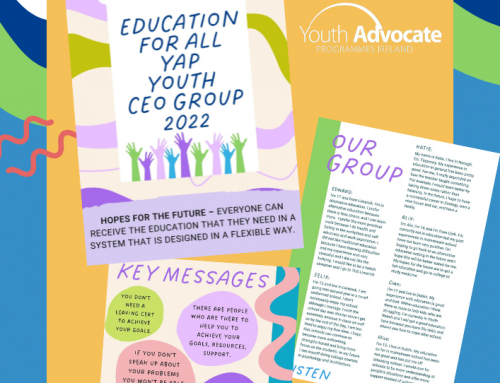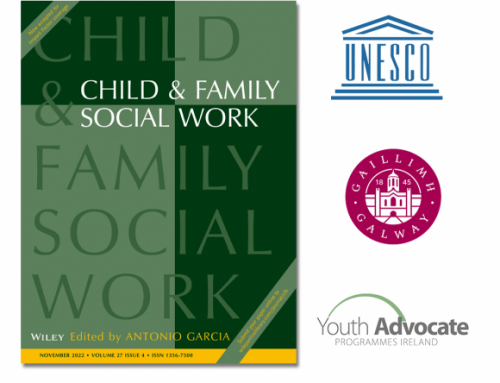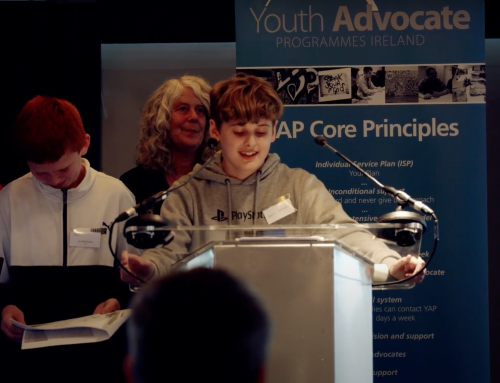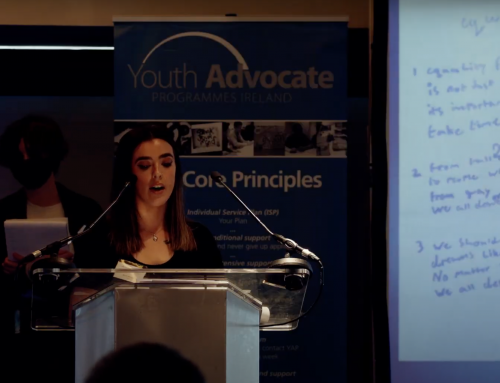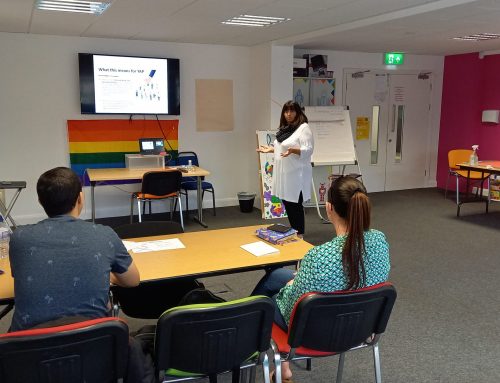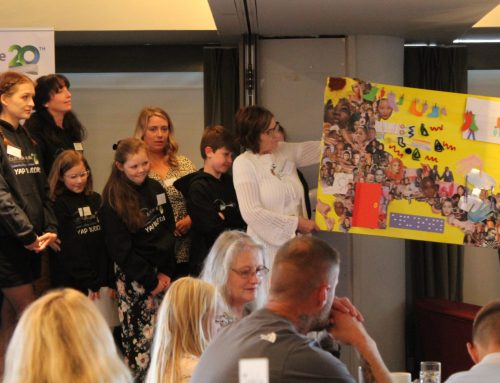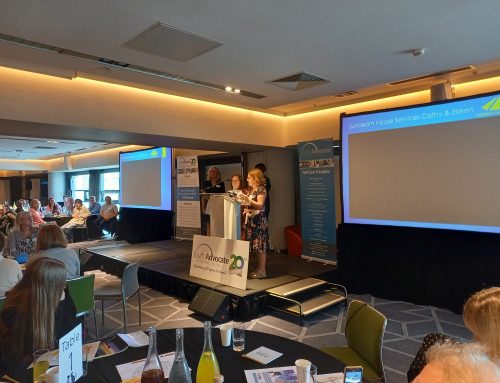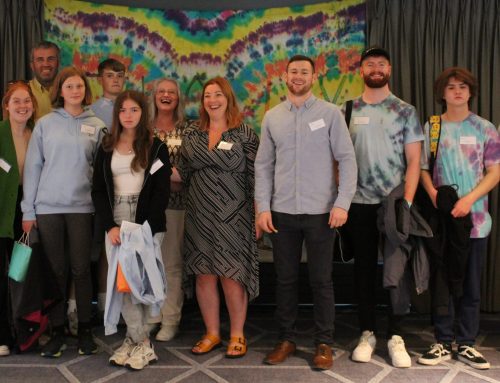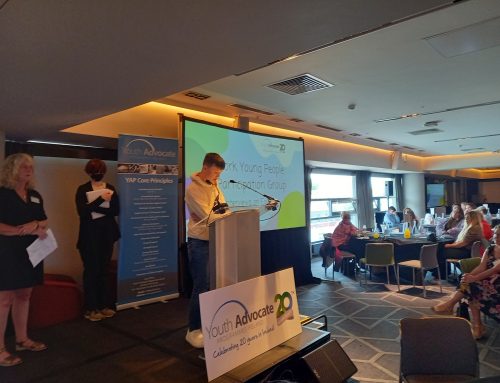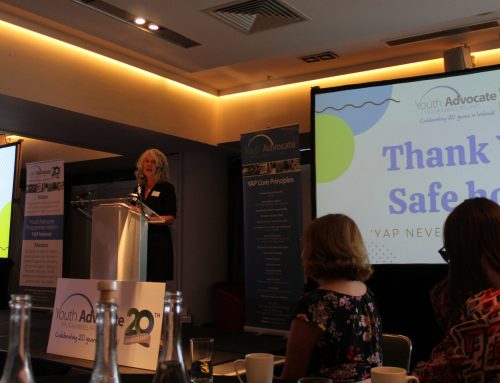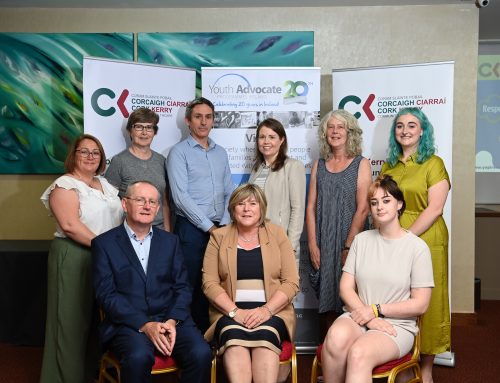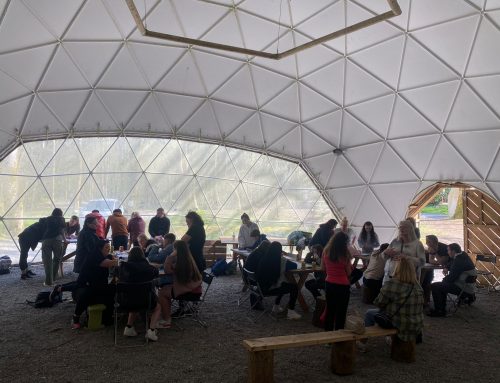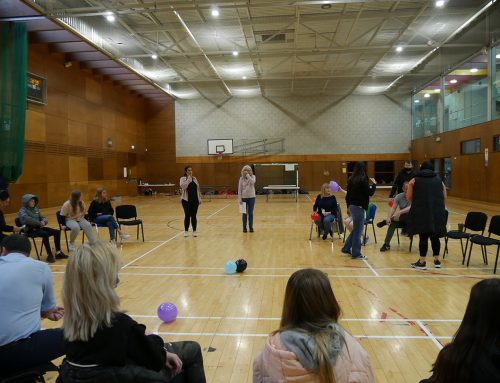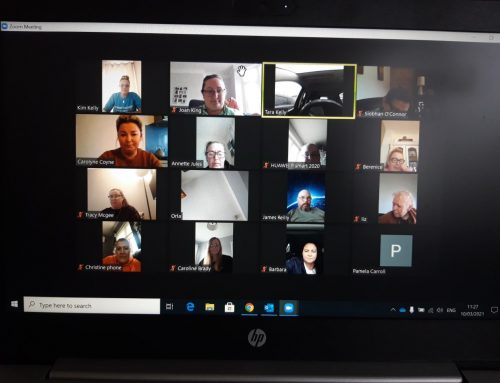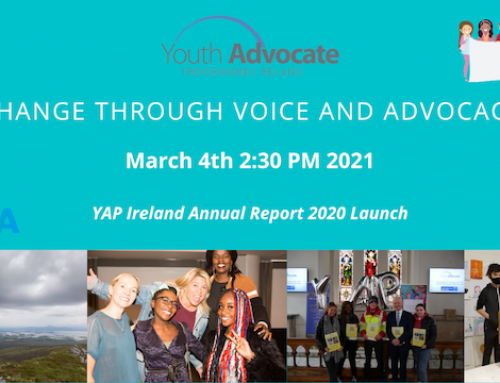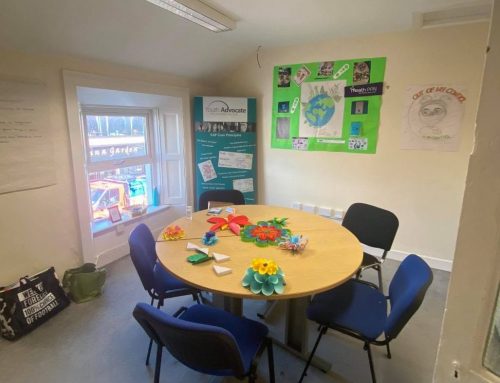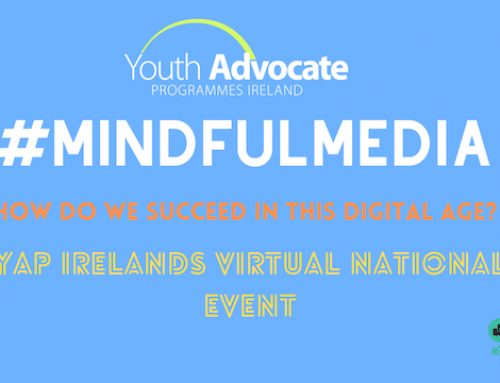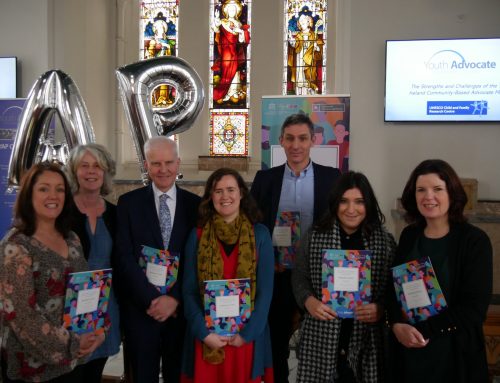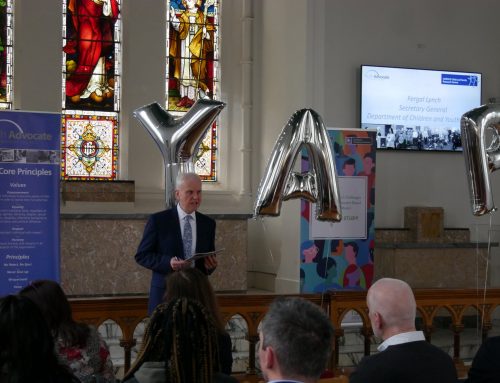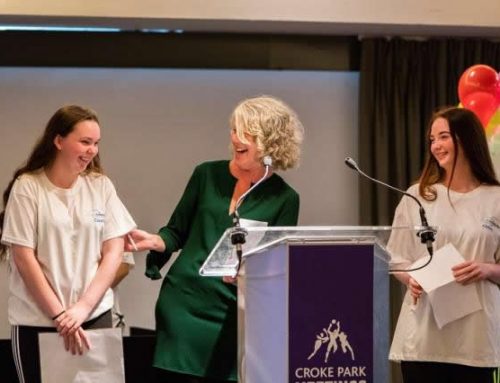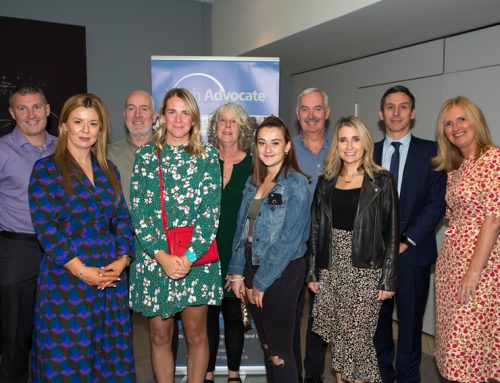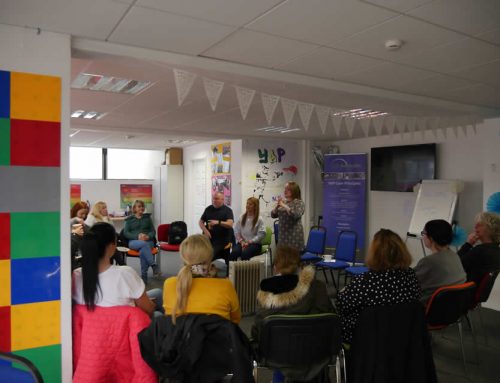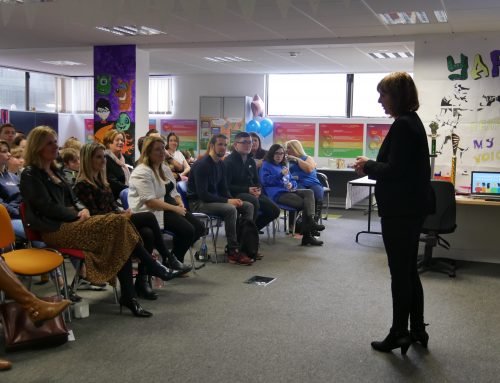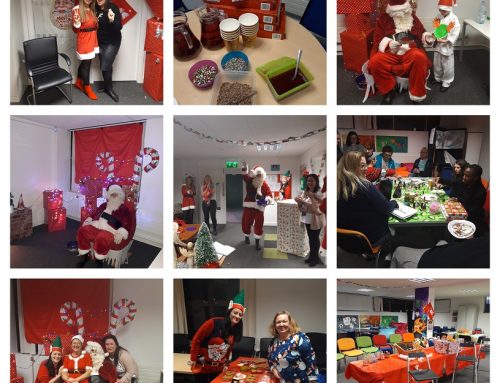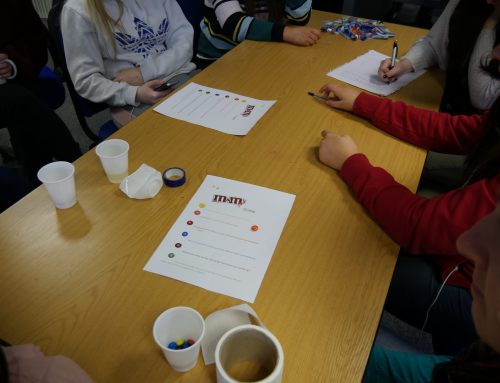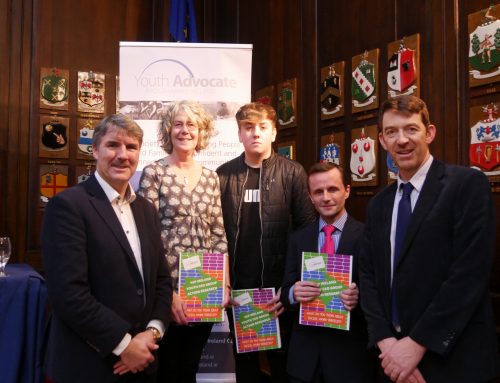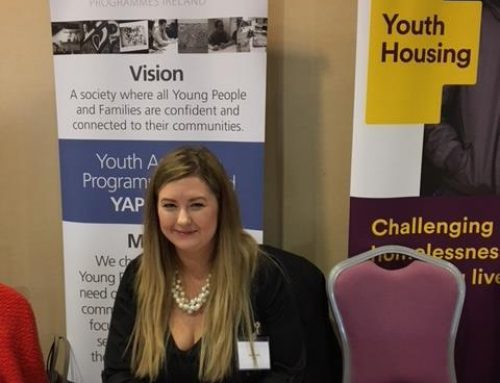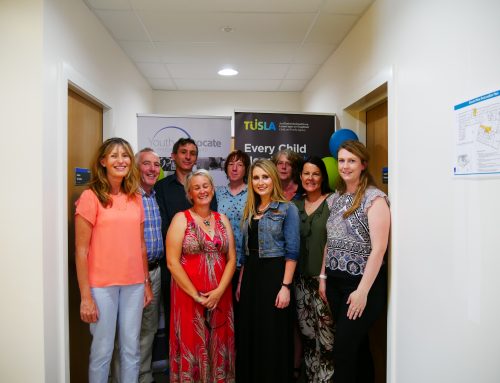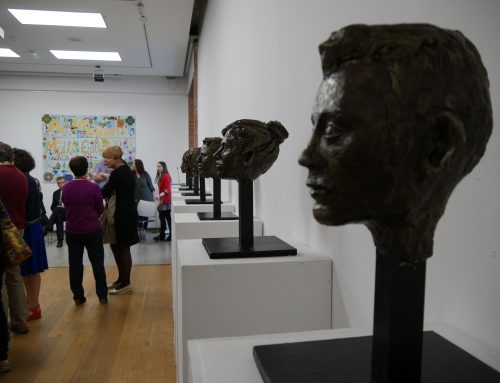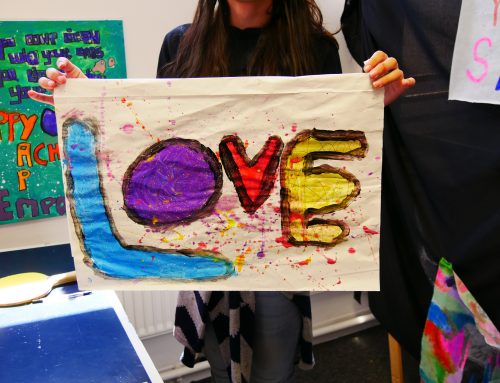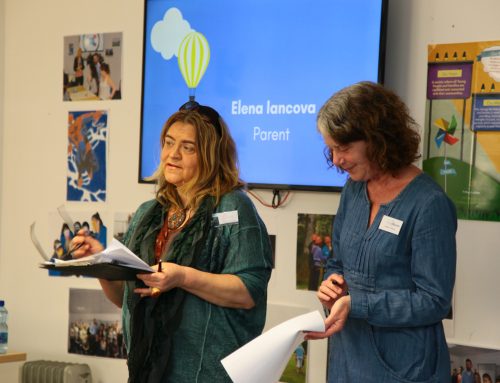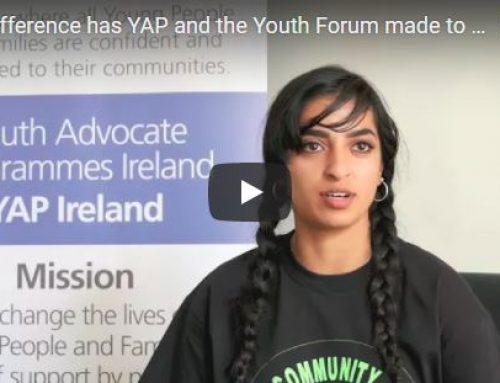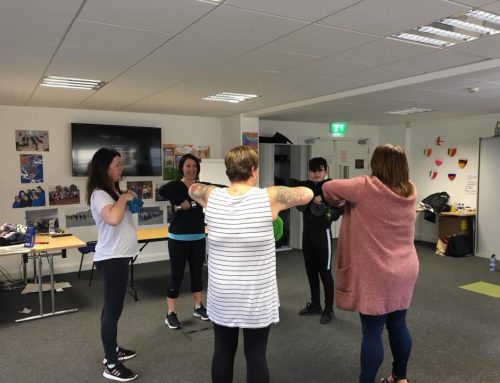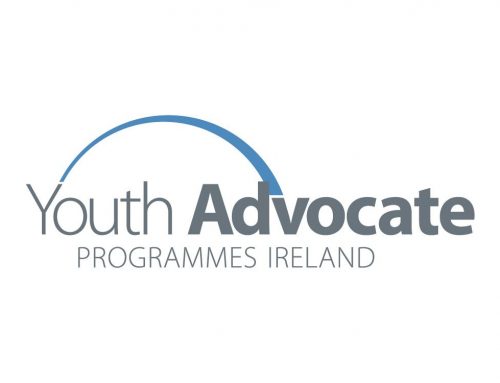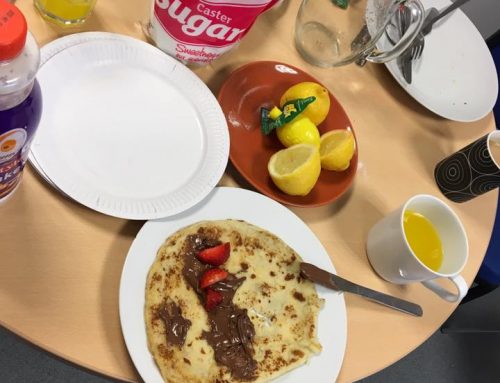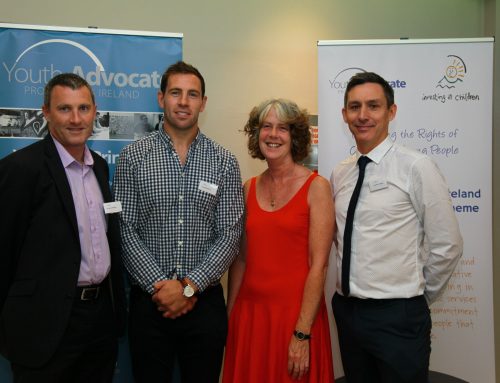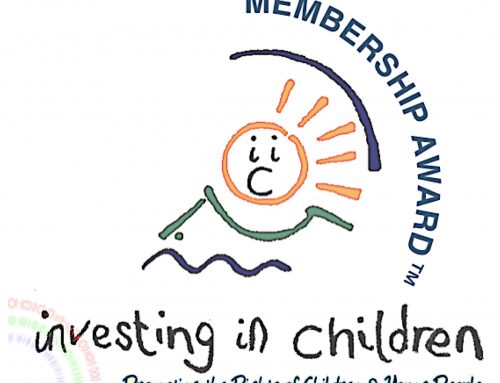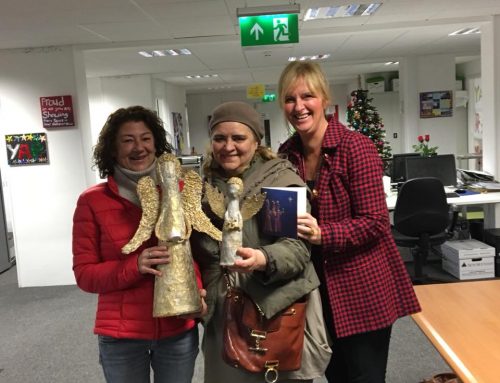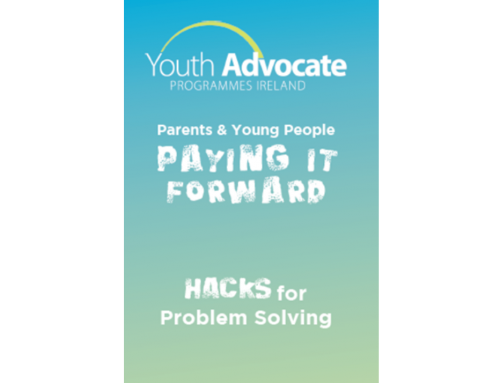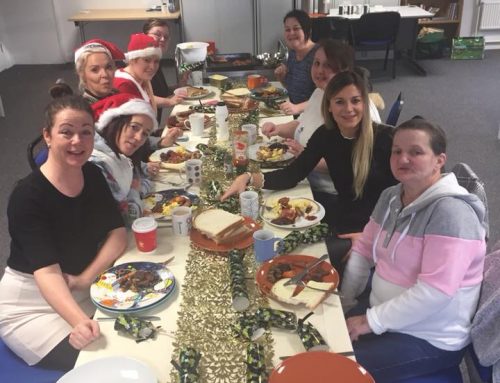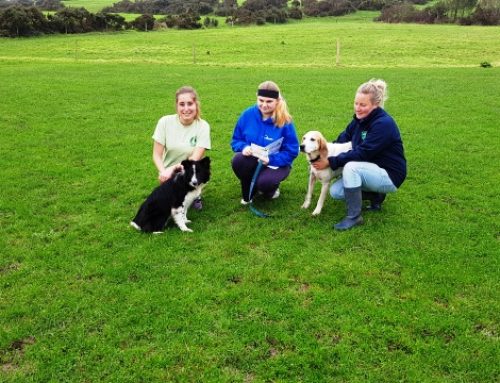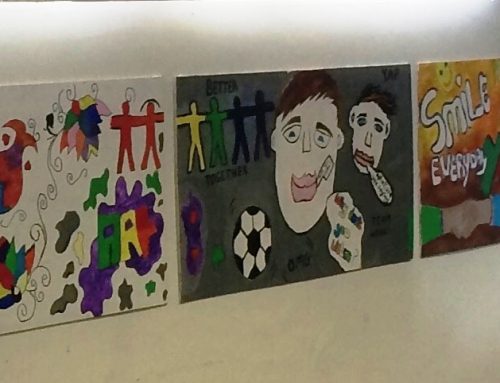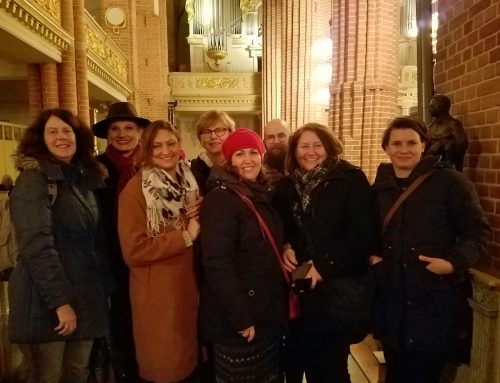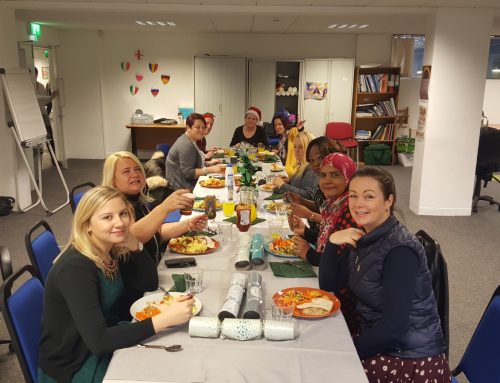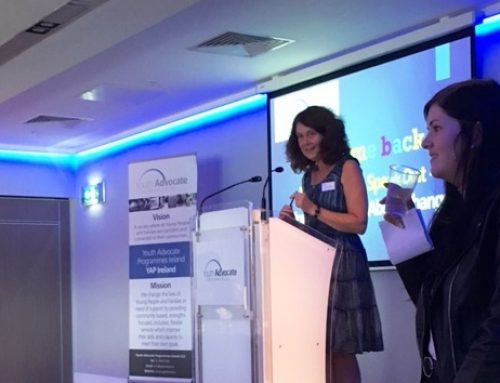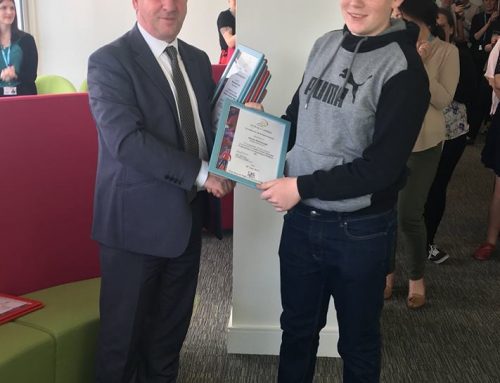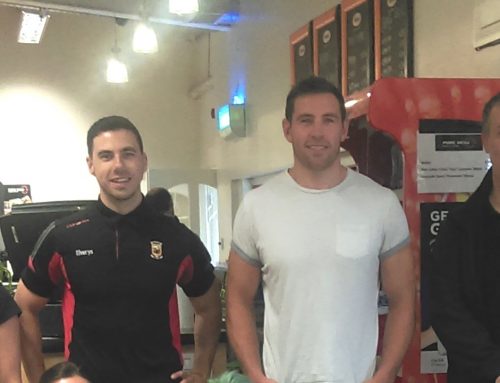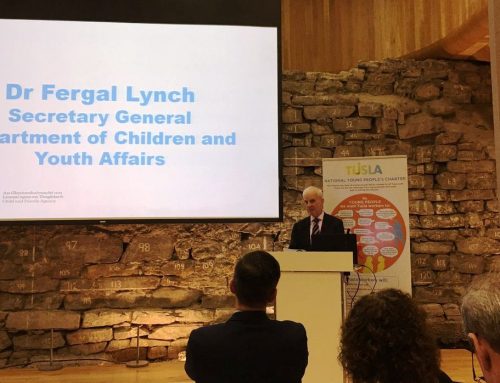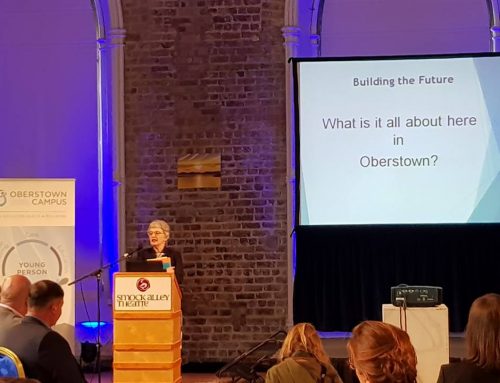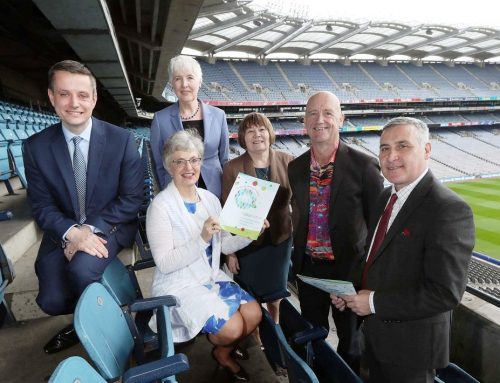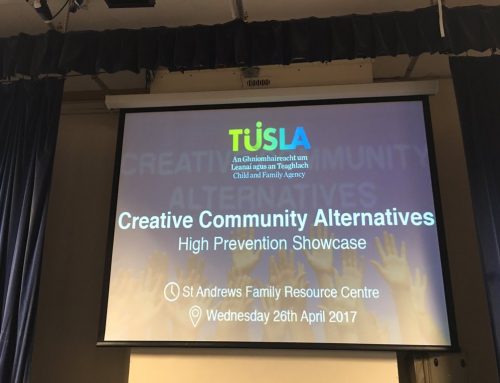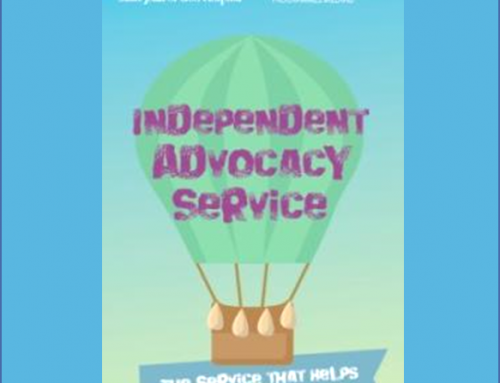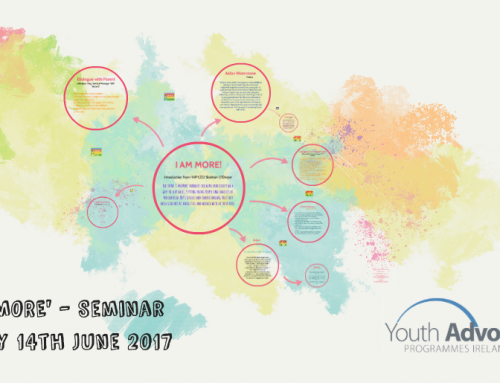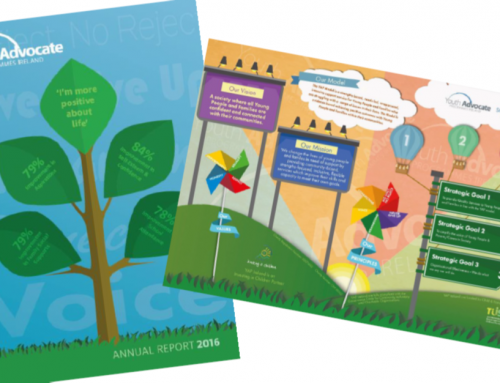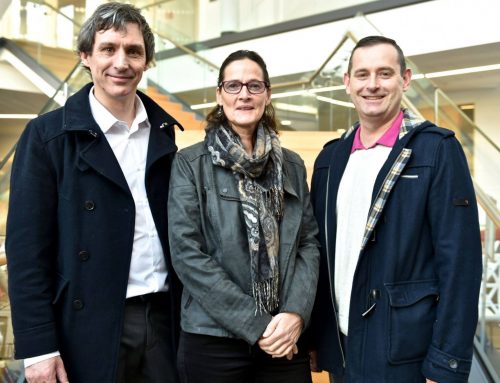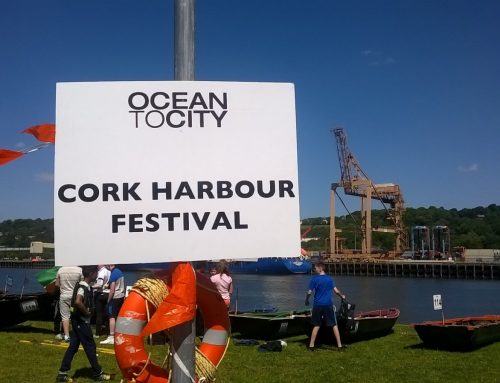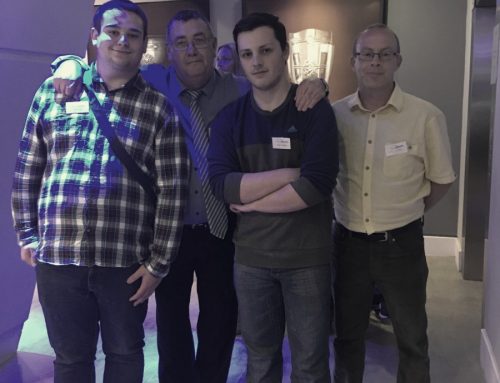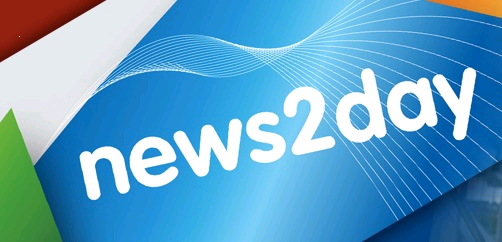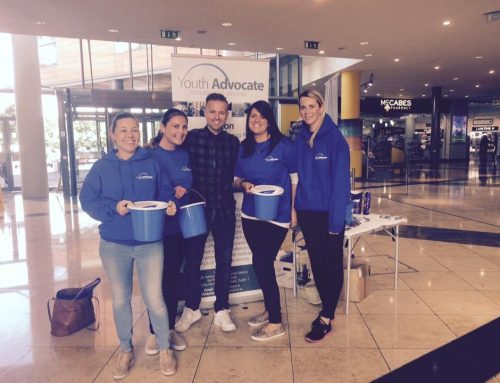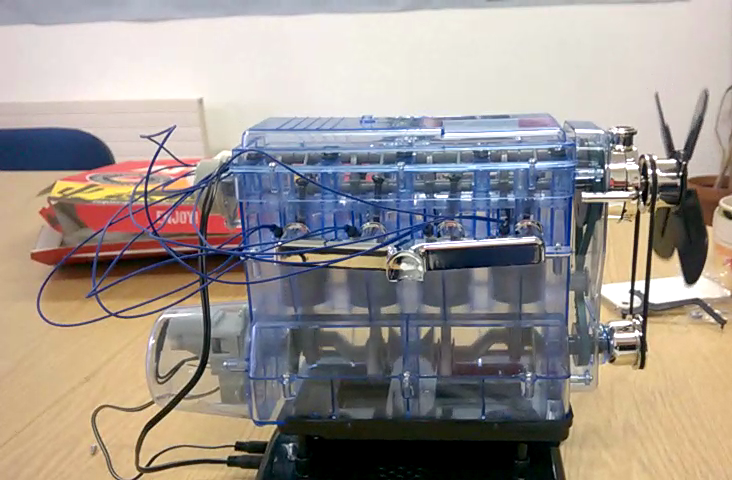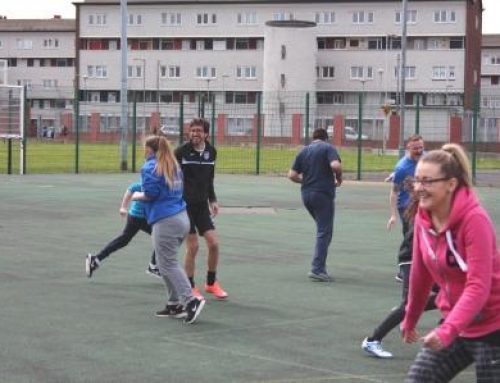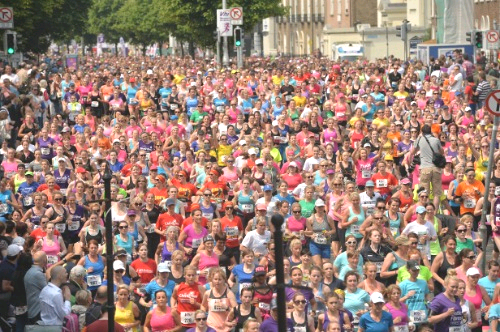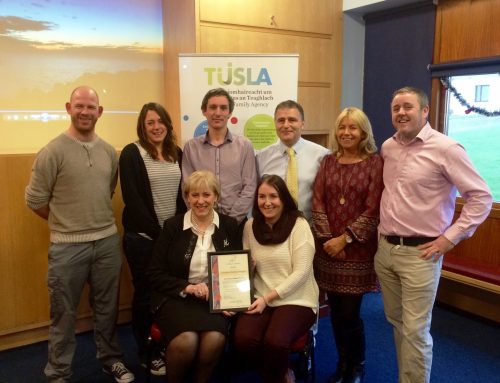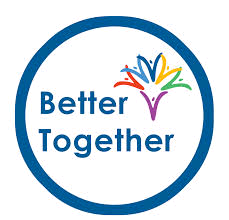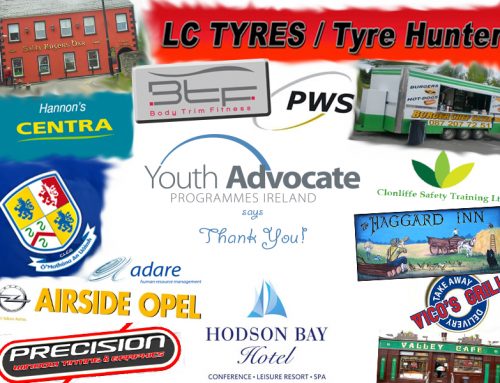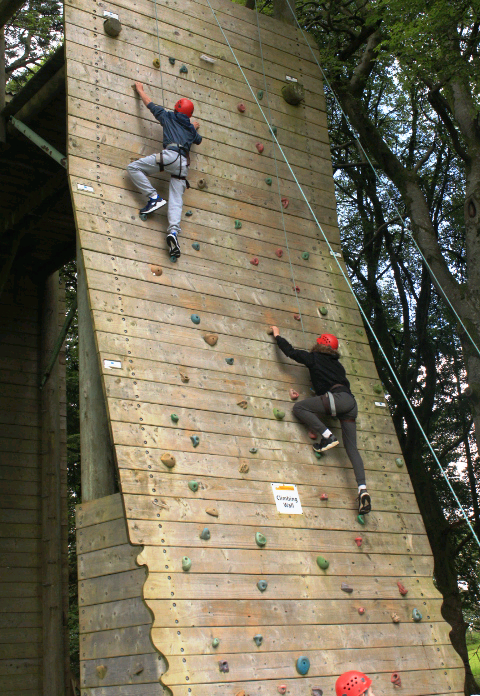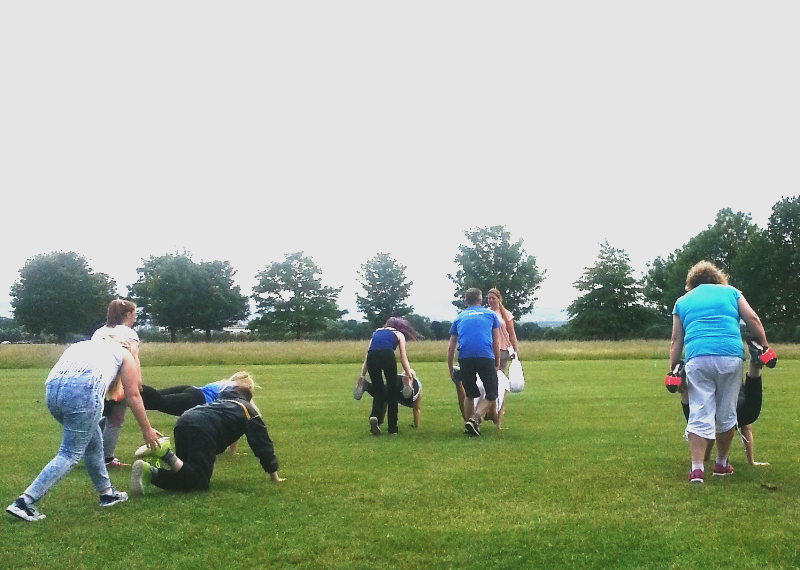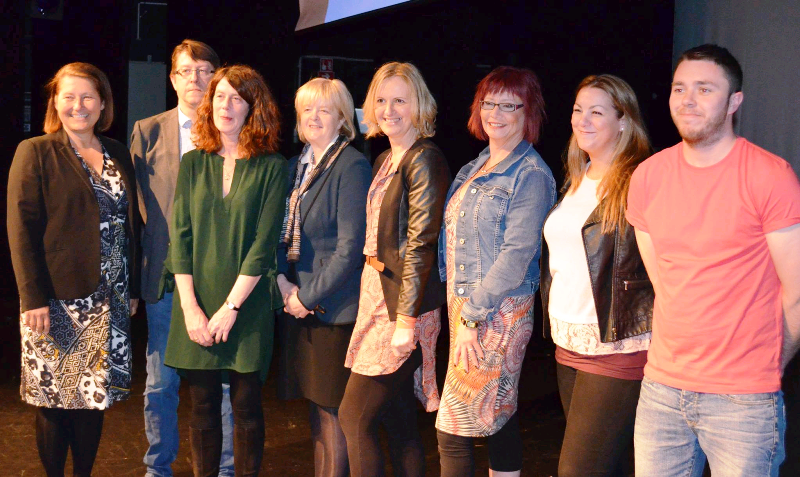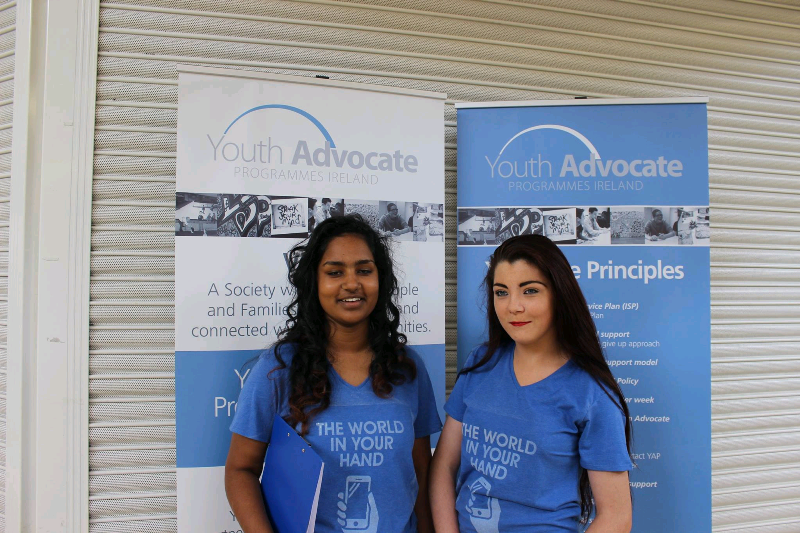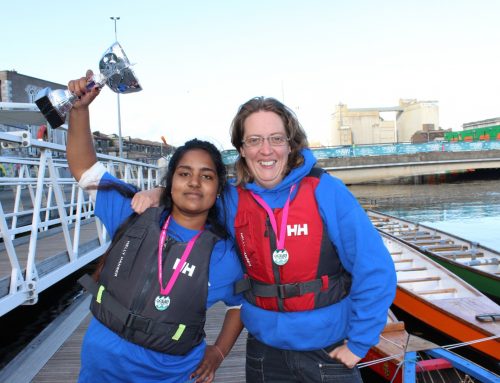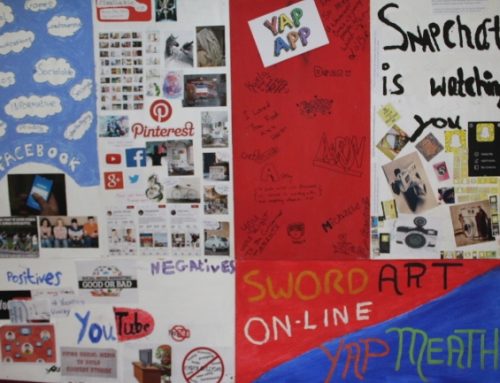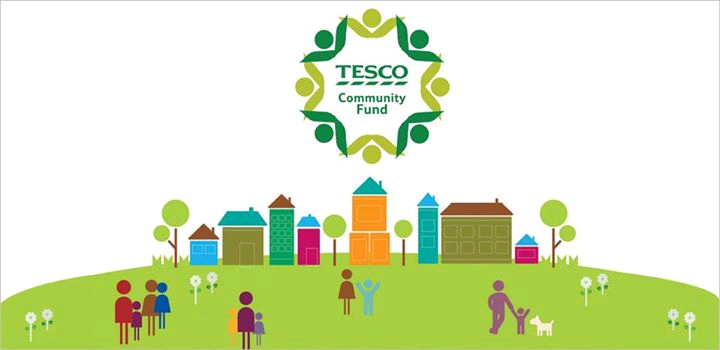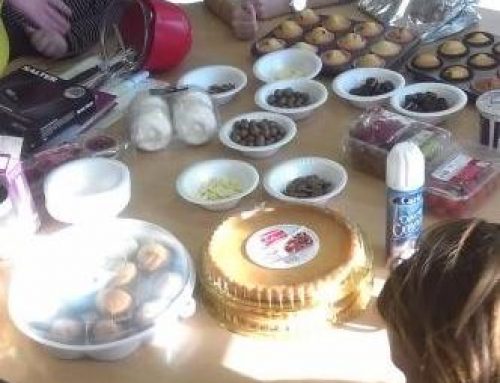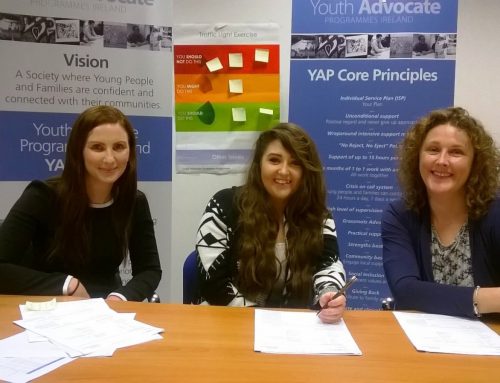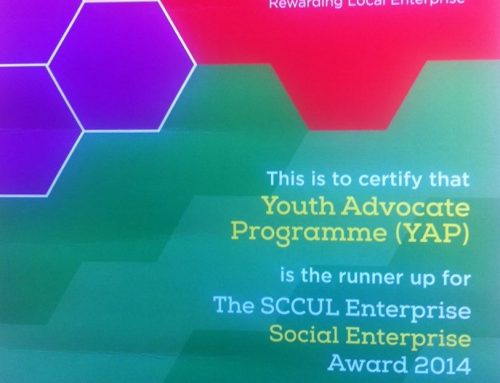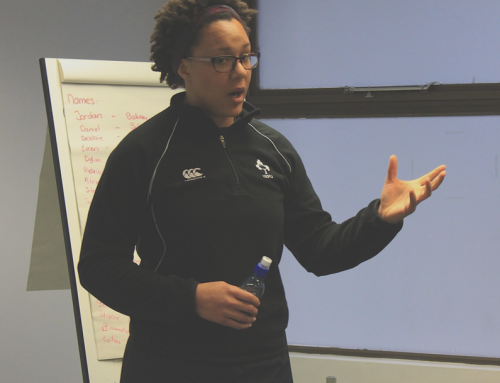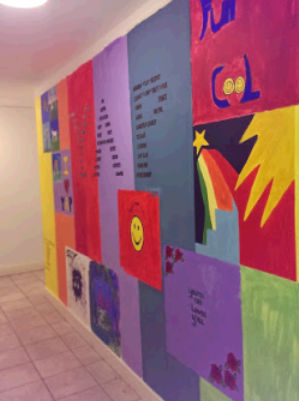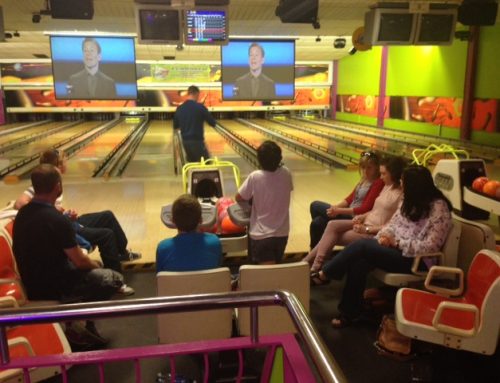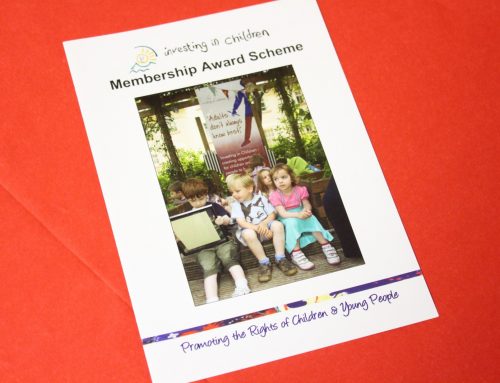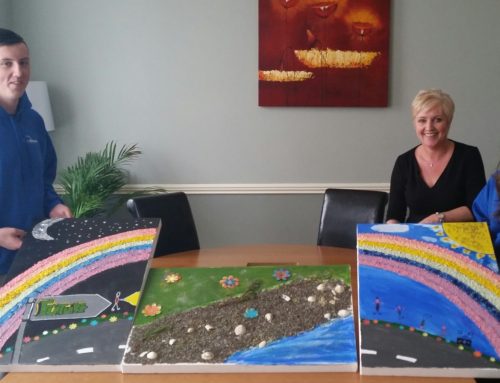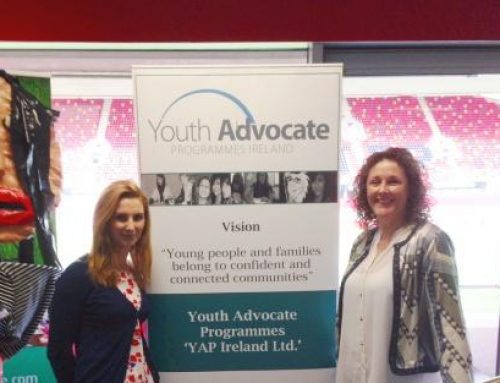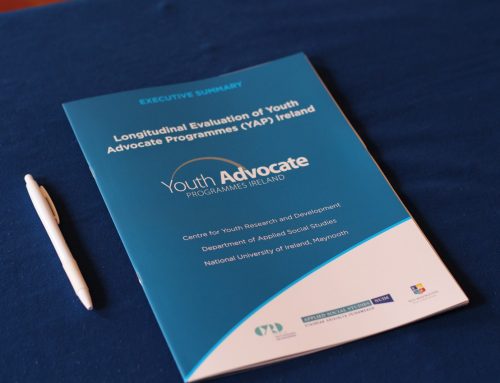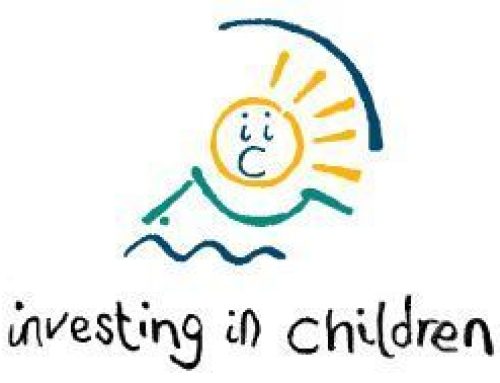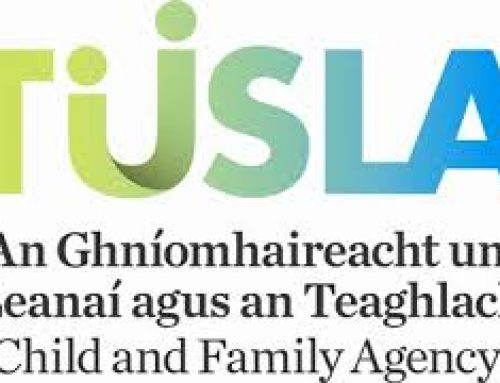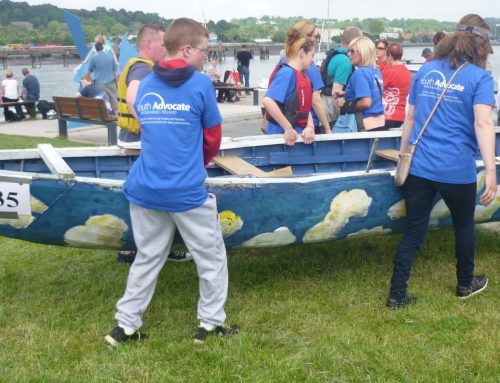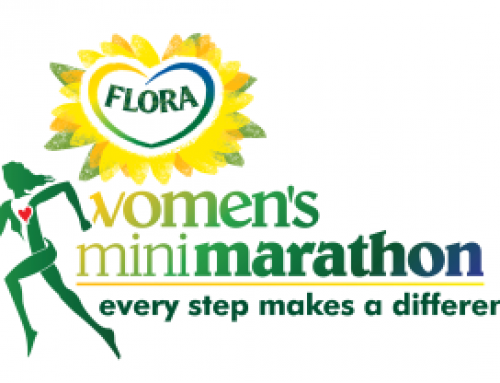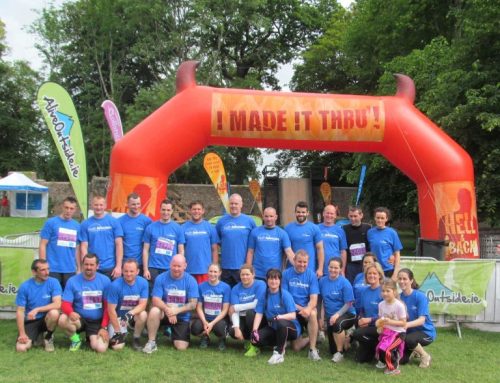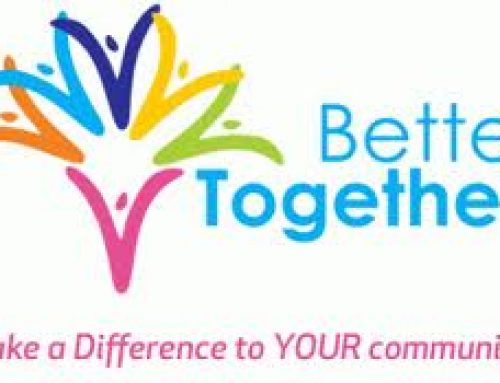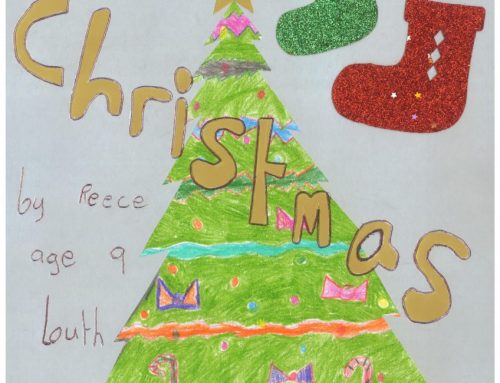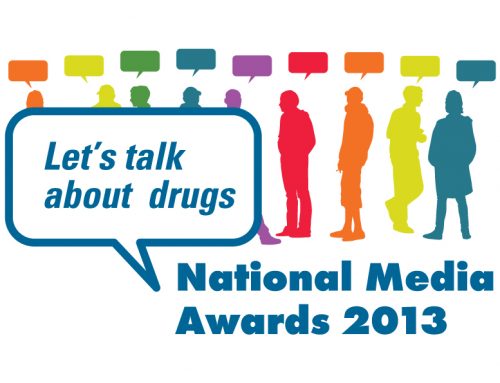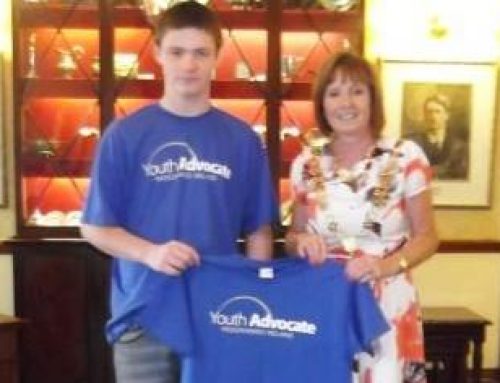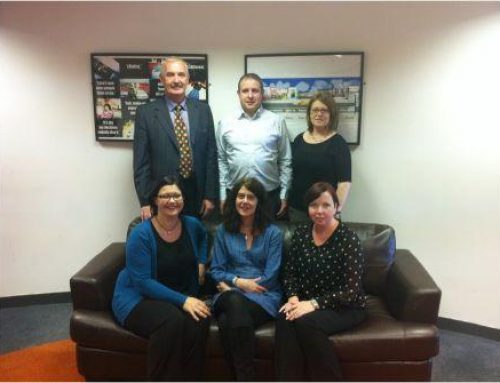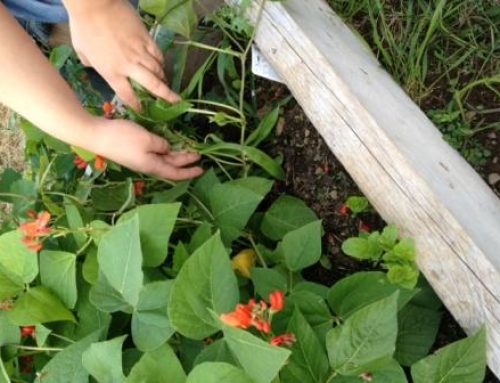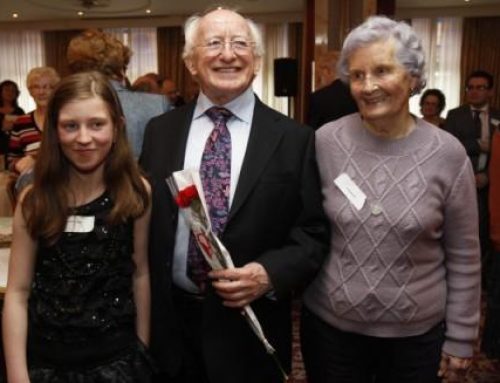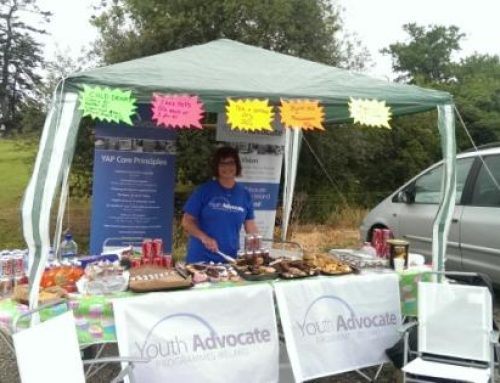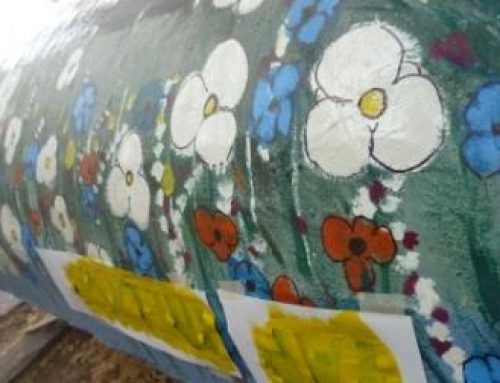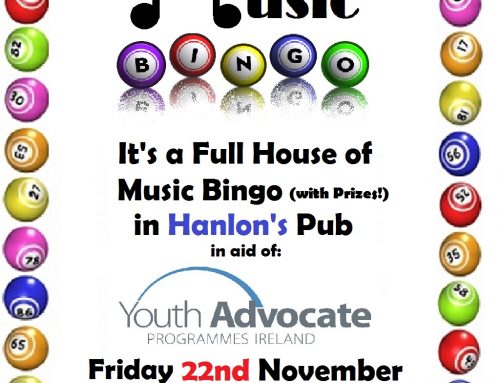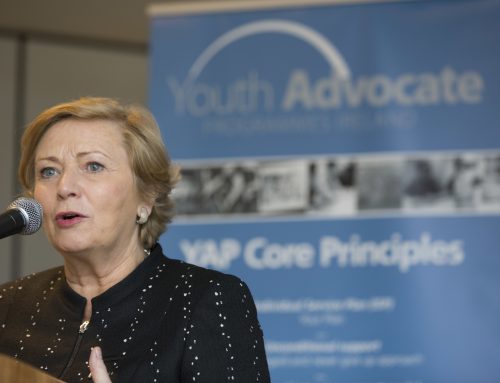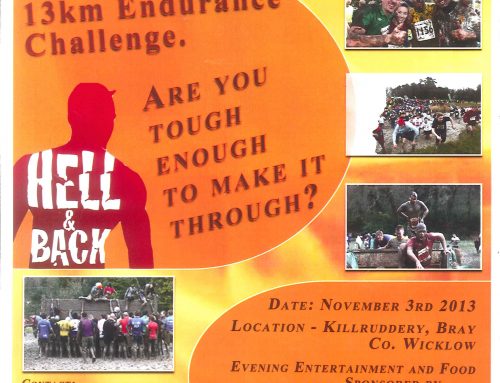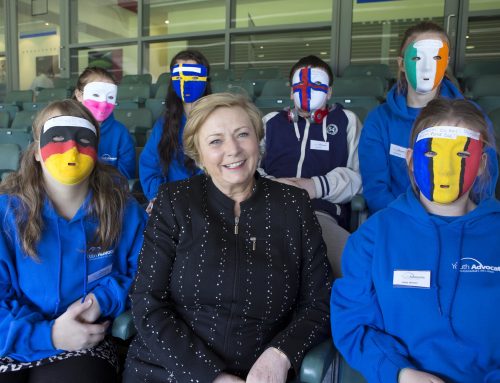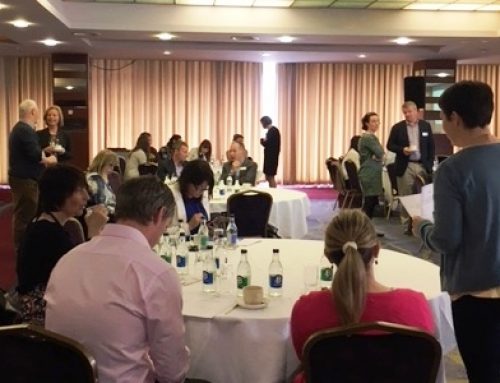YAP – Standing up for Ireland’s Young People who Challenge Us Most
A few months ago (mid 2016) I was asked and agreed to join the Board of YAP Ireland CLG. On Friday 21st October in Dublin, I attended a morning event which was all of the following at the one time: disturbing, enlightening, uplifting and ultimately positive, yet challenging. The title of the event hosted by YAP Ireland CLG was, ‘Children who Challenge Us Most’.
So what is YAP?
Since 2002, YAP Ireland CLG has worked to change the lives of vulnerable young people. They do this using the YAP model. Each young person is assigned an Advocate who has been recruited from within their Community and trained by YAP. The engagement with the young person and their family is for 6 months. A plan is jointly developed to develop the strengths of the young person. An average YAP placement costs approximately €10,000 with funding provided by TUSLA Ireland’s Child and Family Agency. YAP believes that young people should be supported to stay at home and based within their community.
So does it work?
Yes – watch the Video of Brandon
Also watch the follow on video with his mother Tanya. I would also advise checking out what YAP means to these Young People.
Disturbing
The first speaker was Geoffrey Shannon, Special Rapporteur on Child Protection who was tasked with ‘Setting the Scene’. Honestly I had never heard of Geoffrey or indeed of this role. But I was hugely impressed with his talk – passion infused with logic, analysis and forward thinking. He referenced a report with a key point:
Young people in the care of the state die.
He brought home this disturbing fact using real examples included in an official report. There was one young person who was present when his mother died. He committed suicide two years later, while in care. According to the report, it was found that not enough was done in the intervening period.
I later found this article online from the Journal Children in Care Deaths Aug 16 which also recounts tragic stories of real young people. It is very sad, but it is somewhat heartening that we are a democracy. We publish rather than hide these reports. But we must do better.
There are lots of social issues affecting Ireland. I am not saying that this is the most or exclusively important but I think it is good to shine a light. I was heartened with the response in the room – attended by representatives of organisations which included: HSE, Tusla, Department of Children and Youth Affairs, Department of Health, Department of Education, Garda Office for Children & Youth Affairs, Ombudsman for Children’s Office and the National Co-ordinator for Children’s Services Committees. All acknowledged the issues and did not seek to cast or deflect blame. I think that there was also an acceptance that the points raised by the Special Rapporteur were valid and worthy of further debate – debate that would lead to change and action. The two points that struck me from his talk was the need for:
– Reform of how ‘special care cases’ are treated by Legal System. The money spent on legal teams should be redirected at a much earlier stage to helping the young people. He said that this was probably an unusual position for a legal person to adopt and probably unpopular amongst the profession (but maybe they see the futility of it too, but are stuck in a rut).
– Better communication at ground level amongst agencies tasked with working with Young People. It would seem that Ireland has great policies but for perfectly understandable reasons (budget, systems and human) this does not always translate to the frontline. He was advocating approaches which wrapped around the young person or child. Unfortunately, the current model is predominantly to design interventions for the collective. The perception can be that issues such as finance and efficiency have greater importance than the voice of the young person.
The overriding sense from the first part of the session is that there are no easy answers to working with young people who challenge us most. But in Ireland there are experienced, qualified and committed people who are energised to both highlight and address the issue. We can build on the massive progress that has been made in Ireland since the foundation of the State in terms of the quality of life and opportunity for our young people.
The next speaker’s contribution was equally thought provoking. Jeff Fleischer CEO YAP Inc. was asked to speak about his 40 years of experience in the US. These days when I think of America, the two presidential candidates immediately spring to mind given their media exposure. Jeff is the antithesis of those characters. He told a remarkable story of Gus. To paraphrase:
Gus was a young person charged with fire setting. YAP got involved as the Judge liked their model and said Gus deserved a chance. A series of interventions were put in place over time:
– An advocate from YAP who spoke Portuguese was assigned to Gus’s mother. This proved crucial as her lack of English had impeded communication with the authorities.
– A community therapist who had expertise in fire setting engaged with Gus.
– A local fireman was assigned as Big brother/Mentor.
– Local soccer coach brought Gus onto team
– Supported Work for Gus with a local carpenter
– Teacher assigned to track and support Gus in school
And the icing on the cake was that they asked Gus who his favourite person was. He named his uncle, but he never got to see him. His uncle had 4 part time jobs. So YAP approached him and asked would he give up one part time job and work with YAP for 15 hours a week on a paid basis, he agreed. Gus got to spend time with his uncle.
Jeff had several such stories, but his presentation had a moral too. YAP receives funding from lots of Government and indeed private organisations. They undertake pilot projects in the most disadvantaged (crime, education, poverty, unemployment) areas. They divert current spending to YAP initiatives. This not only has better outcomes but it saves millions of dollars every year. Many of these initiatives are then mainstreamed. Check out this one page pdf of the Fort Worth Gang Intervention Program focusing on highest crime neighbourhoods.
Thought Provoking
As I listened to Jeff, I thought about the normal reaction to youth justice issues, for instance vandalism, drinking and drugs, petty crime and joy riding. The normal (initial) reaction is to throw the book at these young people. The YAP model, in both the US, Ireland and many other countries, highlights that a different approach is required. Gus should not go to jail (or juvenile detention). A different approach can work, one which benefits both the young person and society in general. Society has a duty of care to the young person.
It is often said that any person is only one pay check away from homelessness. As I listened to the stories I was struck by a similar concept used by Colm O’Brien in his book ‘Feeding Johnny’ Colm O’Brien Book. In explaining his childhood he said something to the effect that he struck it lucky in the ‘ovarian lottery’. He was born white, in Dublin and to good working parents. I agreed that I also had been lucky. But not everyone has such luck. As Shay in Cork said to me after the event,
Not all kids in Ireland are like the ones you see on the Late Late Toy Show!
BTW, the book is brilliant. I downloaded the eight chapters and listened to them in the car (40 minutes each), a recommended listen (or read) for everyone!
So in reality, when you analyse it, the actions of the young people are not their fault. So then you think it must be the Parents. But when you step back, they are also in a tough position. We need to support not castigate them. The essence of the YAP model is that young people must be supported within their own home environment. Siobhan O’Dwyer, CEO of YAP Ireland CLG told a story of how a young teenager, who was in care and separated from his mother travelled to London and found her. When they came home, jail was threatened. The young person had gone to extraordinary lengths to reunite the family. That family deserves all our support to keep them together. This circular reasoning suggests that no one entity (even our Government) is to blame. But we need leadership and partnership to devise solutions. These solutions must be community based. They also need to put the child at the centre. YAP Ireland will play its part.
So what do ‘we’ do?
Before looking at what we can do, I must address what we must not do!
A recurring theme emerged from a number of contributors. This was the acknowledgement that sometimes it is easier to take ‘the safe option’ rather than try something new that might or might not work better. Avoidance of risk and playing by the rules is paralysing timely action. The government sector is under such scrutiny in terms of expenditure that systems have been implemented that effectively shackle the people tasked with providing public services, in this case working with vulnerable young people. I am reminded of the phrase, ‘All that is needed for evil to prevail is for good people to do nothing’.
What we cannot do is Do Nothing.
So what am I doing? No person can solve all issues. With the time available, I think that my best contribution is as a Board member. My due diligence involved meeting with the CEO and asking serious questions about Governance. This is a hot topic in the charity and not for profit sector. I am happy to report that YAP has and will continue to work strenuously in this area and has a stellar track record. I have now attended two Board meetings. I also attended a Two Day Strategy Away Days with the Staff. My aim was to meet the staff and signal to them that I am very impressed with their work and that what they are doing has great value. I include frontline and support staff; senior management; and of course my fellow Board Members, to include the formidable Chairperson Aidan Browne, in that assessment. I am delighted to be associated with YAP.
So I would ask you to consider what you can do:
1. Consider the views of this post. Next time you hear of a young person in difficulty, take the time to stand in their shoes and those of their family.
2. YAP regularly recruits Advocates in Dublin, Galway, Limerick, Cork, Dundalk and other locations. Check out these part time roles: Advocates
3. Demand leadership from your Political Representatives, both local and national, when allocating funding in this area. Ask them to consider the best models to use to assist vulnerable young people. My bet is that YAP will score highly in any such assessment.
4. YAP Ireland accepts donations online, and undertakes fundraising campaigns. If you are a Tesco customer, YAP Ireland is a member of their Community Fund.
Finally, I read Seth Godin every day. On the 24th of October he wrote about Moral Hazard and inhumanity. Moral Hazard & Inhumanity
Comments welcome.
Regards
Donncha
